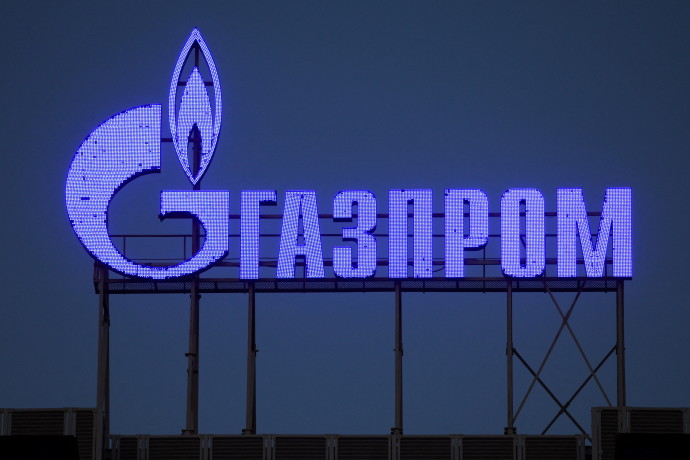Russian energy giant Gazprom on Wednesday halted gas supplies to Bulgaria and Poland because they had failed to pay in roubles.
Russian President Vladimir Putin has demanded that countries he terms "unfriendly" agree to a scheme under which they would open accounts at Gazprombank and make payments for Russian gas imports in euros or dollars that would be converted into roubles.
Poland has repeatedly said it will not pay for Russian gas in roubles and has planned not to extend its gas contract with Gazprom after it expires in the end of this year.
"Payments for gas supplied from April 1 must be made in roubles using the details of the new payment, about which the counterparties were informed in a timely manner," Gazprom said on Wednesday.
Poland will do everything to impose contractual fines on Russia after it stopped gas flows to the country, the prime minister said on Wednesday.

We will do everything to charge Russia with contractual penalties, because this action in not legal and not contractual," Mateusz Morawiecki told a news conference.
Both Poland and Bulgaria had earlier said Russia would stop supplying gas on Wednesday to the two NATO and EU members, amid a deepening the rift between Europe and Russia over its invasion of Ukraine.
Ukraine has accused Russia of blackmailing Europe over energy in an attempt to break its allies, as fighting heads into a third month without Russia capturing a major city.
Staunch Kremlin opponent Poland is among the European countries seeking the toughest sanctions against Russia for invading its neighbor.
The European Union network of gas transmission operators said gas to Poland was cut briefly, but later restored, and edged up after dropping to zero.
There was no word early on Wednesday if Bulgaria's supplies were also disrupted.
Poland's gas supply contract with energy giant Gazprom is for 10.2 billion cubic meters (bcm) per year, and covers about 50% of national consumption.
Poland's state-owned PGNiG had earlier said supplies from Gazprom via Ukraine and Belarus would be cut at 8 a.m. (0600 GMT) on Wednesday, but Poland said it did not need to draw on reserves and its gas storage was 76% full.
"The ultimate goal of Russia's leadership is not just to seize the territory of Ukraine, but to dismember the entire center and east of Europe and deal a global blow to democracy," Ukraine's President Volodymyr Zelensky said late on Tuesday.
His chief of staff, Andriy Yermak, said Russia was "beginning the gas blackmail of Europe."
"Russia is trying to shatter the unity of our allies," Yermak said.
Bulgaria, which is almost completely reliant on Russian gas imports, said it had fulfilled all its contractual obligations with Gazprom and that the proposed new payment scheme was in breach of the arrangement.
It has held initial talks to import liquefied natural gas through neighboring Turkey and Greece.
EU to protect consumers from Russian gas supply halt
The European Union will work to ensure Russian gas giant Gazprom's decision to cut supplies to Poland and Bulgaria has the least possible impact on consumers, European Commission President Ursula von der Leyen said on Wednesday.
"Our response will be immediate, united and coordinated. First, we will ensure that Gazprom's decision has the least possible impact on European consumers," von der Leyen told reporters in Brussels.
Gas halt effect on top European companies
Some of Europe's top companies, including Stellantis and Michelin, said on Wednesday Russia's decision to halt gas deliveries to Poland and Bulgaria had not disrupted factories, even as worries grow about possible bigger cuts in the region.
Poland has become a major automotive industry hub over the past two decades as carmakers including Volkswagen and Fiat built factories there drawn by its low labor and production costs.
On Wednesday Stellantis STLA.MI, which owns the Fiat and Peugeot brands, said its three plants there were not affected.
The world's fourth-largest automaker is not a heavy gas user, its gas storages are almost full and Polish gas company PGNiG PGN.WA has reassured its corporate clients that they would still get fuel as needed, a spokesperson said.
Mercedes-Benz MBGn.DE Chief Financial Officer Harald said the German carmaker had not yet seen any impact on its plants in Jawor in Poland, Kecksemet in Hungary and in Germany, but was working on ways to reduce its gas demand.
In addition Michelin's Olsztyn plant in northern Poland, Carrefour CARR.PA, Europe’s biggest food retailer and Sweden’s Assa Abloy ASSAb.ST, the world's biggest maker of locks and entrance systems, do no expect disruptions to their operations.
While its plants in Germany had covered their electricity needs through renewable energy sources, they remain dependent on gas in particular for heating production halls and running paint shops, he said.
